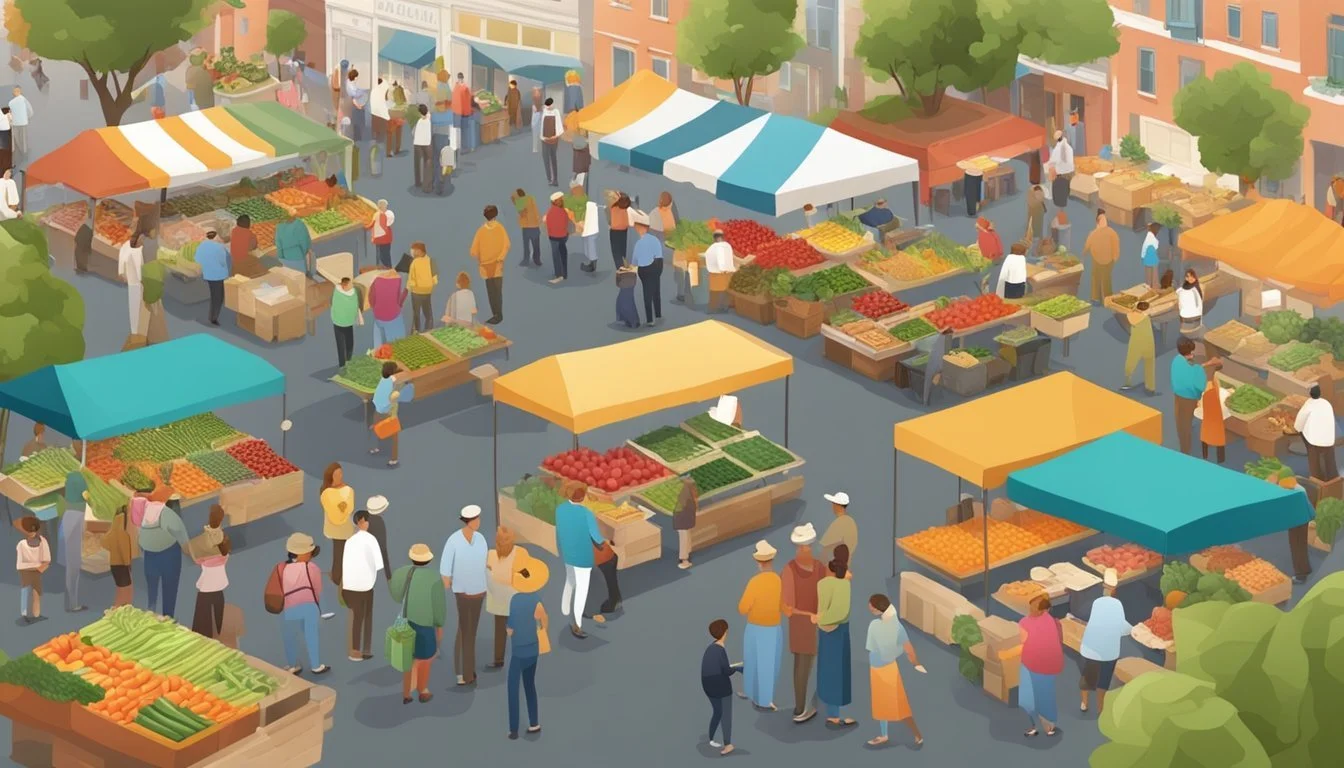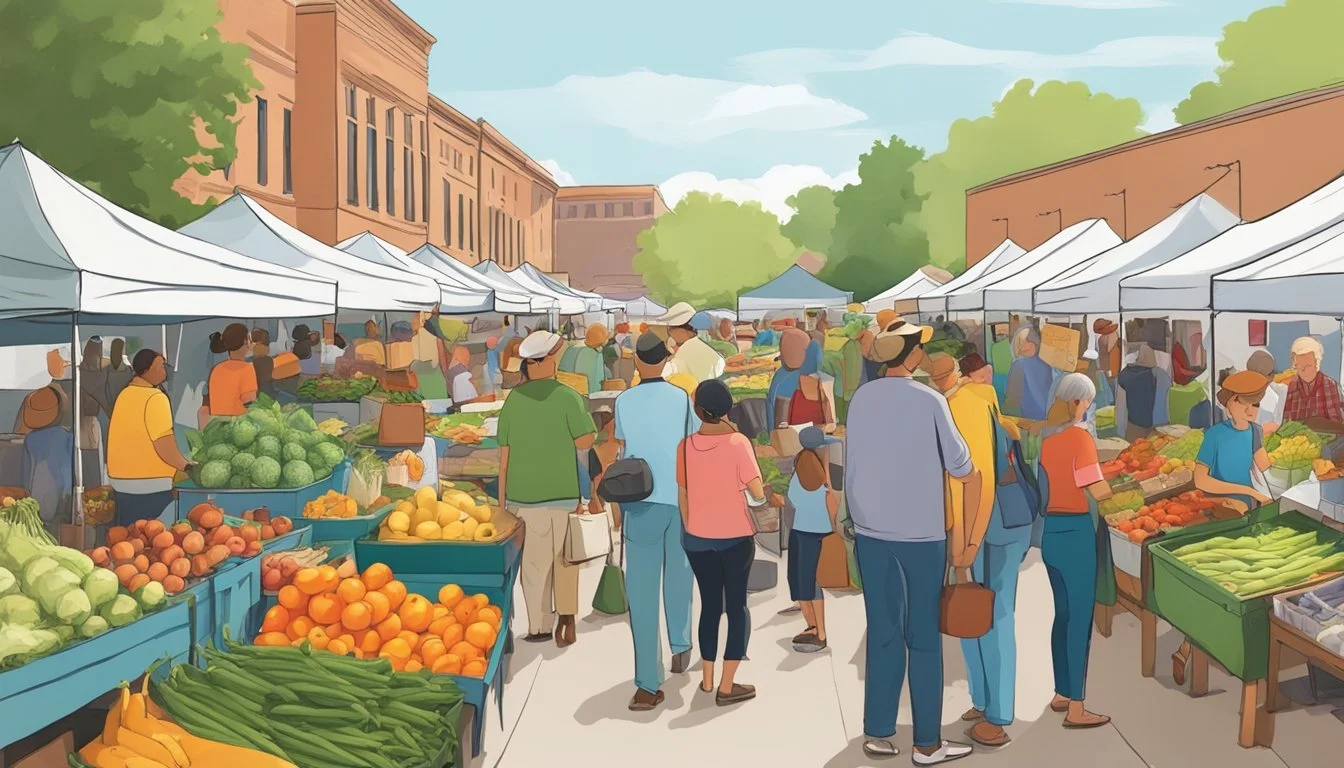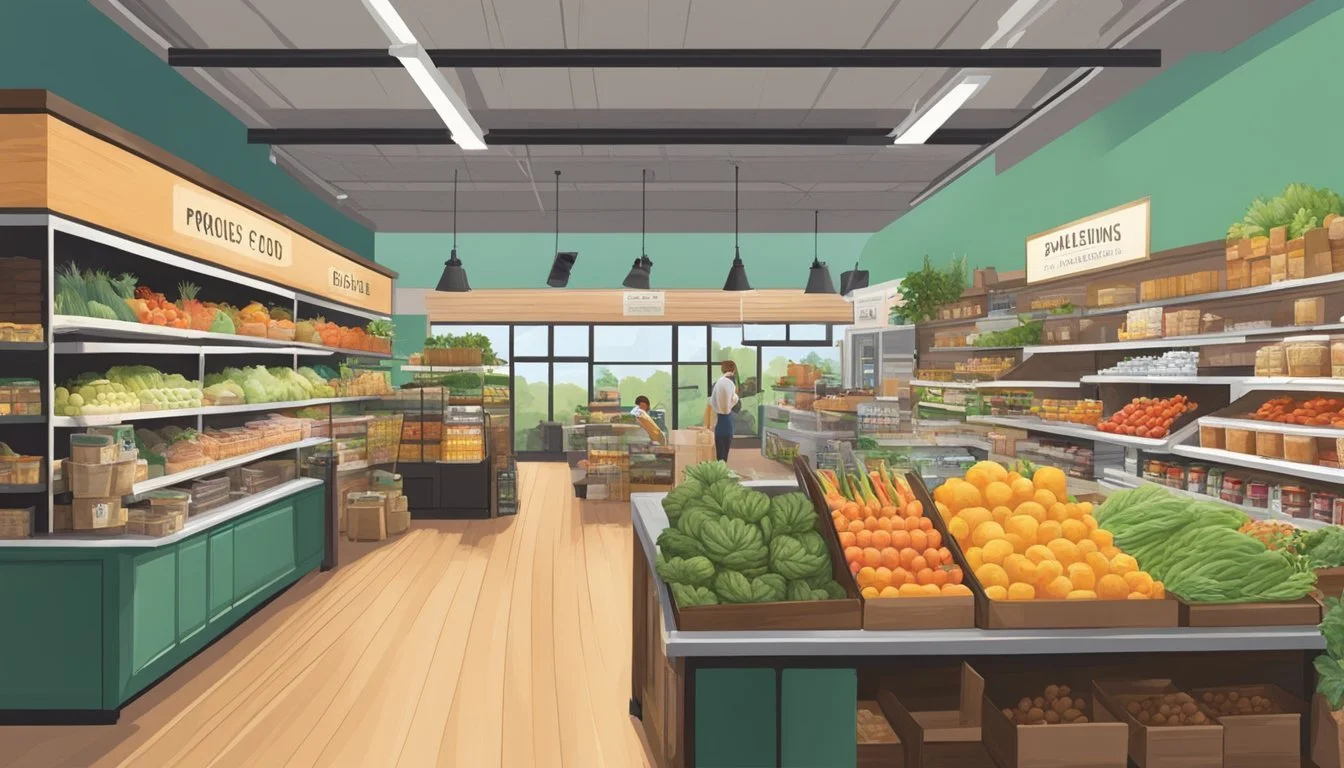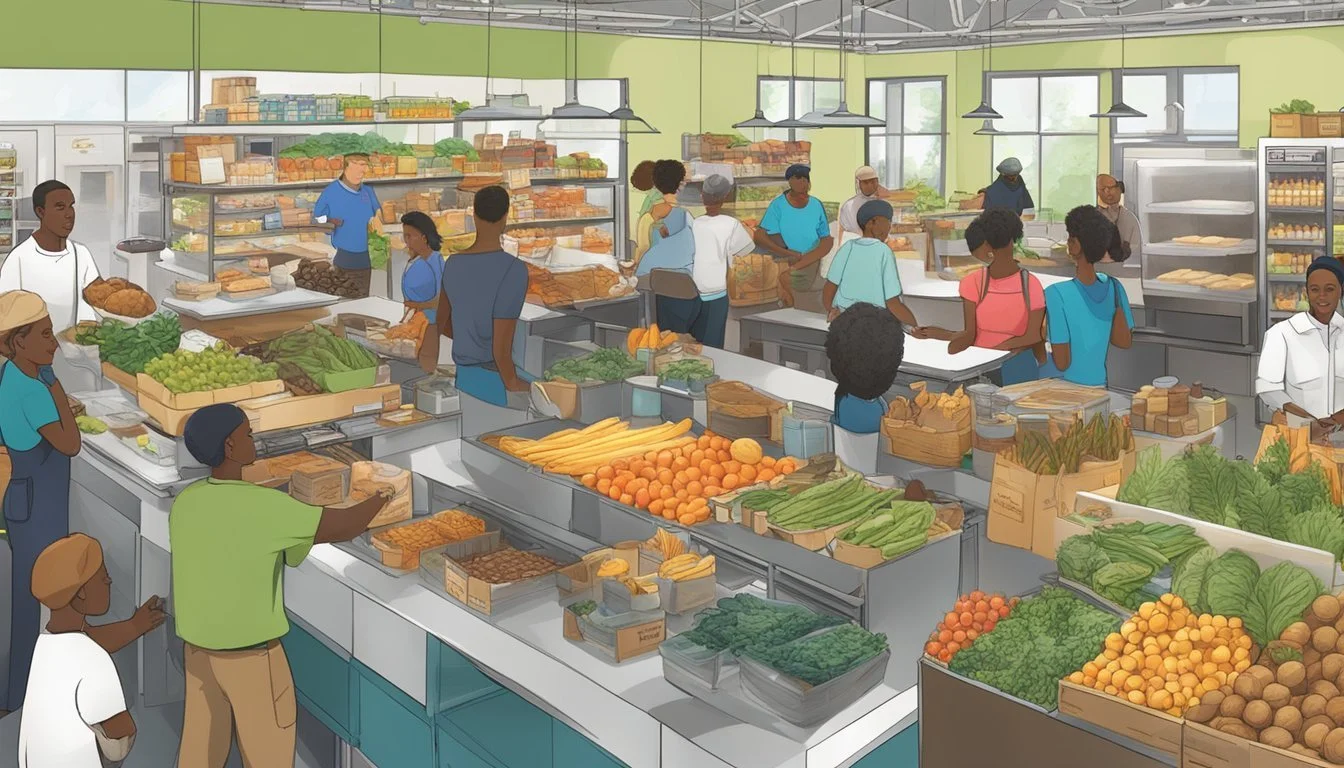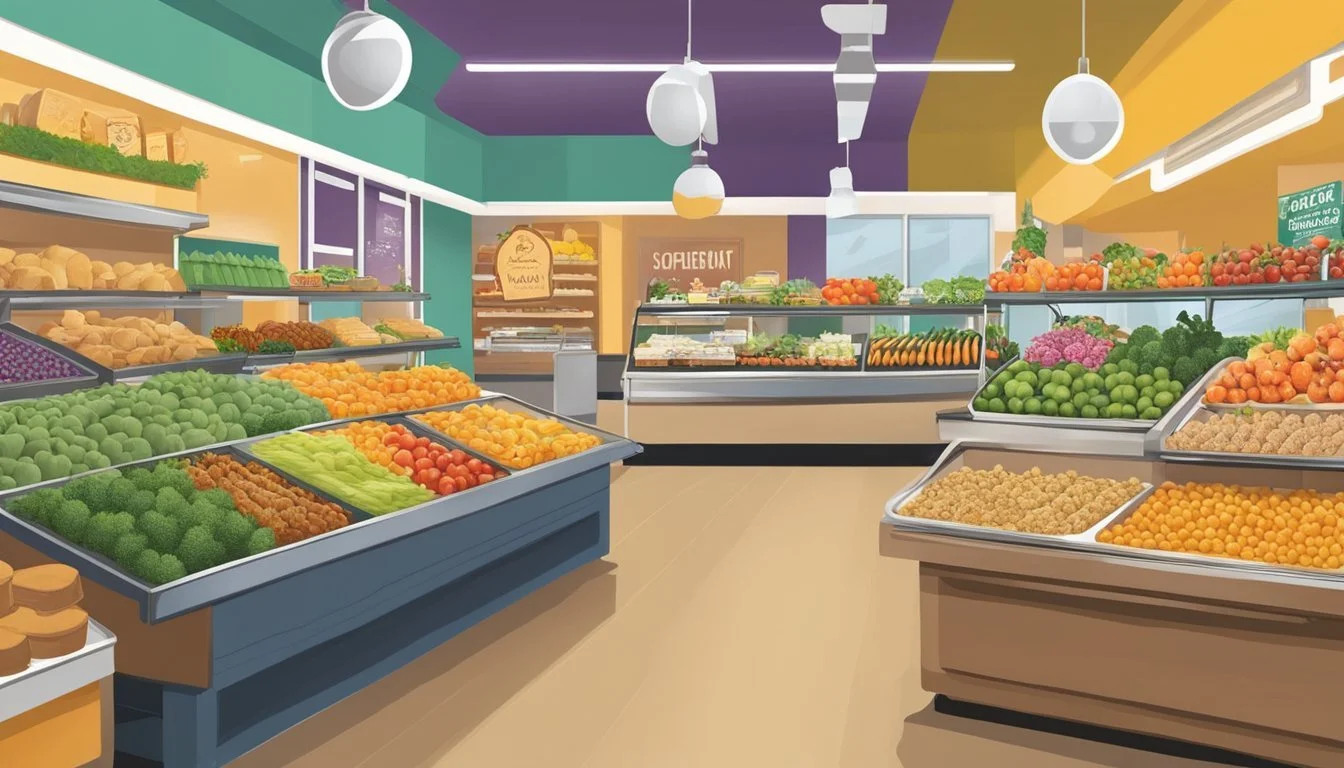Guide to Food Co-Ops in Columbia, SC
Your Local Source for Community-Based Shopping
In Columbia, South Carolina, the community has a growing interest in sustainable eating practices and supporting local agriculture. Food cooperatives, or food co-ops, are an integral part of this movement, offering members and the general public access to locally-sourced and organic food options. These co-ops operate on principles of community ownership and shared benefits, ensuring that consumers not only receive high-quality produce but also contribute to the local economy and the well-being of local farmers.
The city boasts a variety of food co-ops and local groceries that focus on providing healthy alternatives to conventional supermarket chains. For example, the 14 Carrot Whole Foods in Lexington exemplifies a commitment to healthful offerings, aligning with the interests of consumers who prioritize wellness through their food choices. Furthermore, initiatives like FoodShare South Carolina have been instrumental in making fresh produce more accessible to all community members, emphasizing the importance of fresh food availability as a cornerstone for a healthy lifestyle.
Columbia's food co-ops are more than just places to buy groceries; they represent a nexus of community interaction and a shared commitment to sustainable practices. With the presence of farmers' markets and the integration of GIS technology to map out fresh food access points in the city, the residents of Columbia are well-positioned to make informed choices about their food sources. As a result, the community's engagement with these co-ops and local food initiatives plays a crucial role in shaping a more resilient and health-conscious food system.
What Is a Food Co-Op?
A food co-op, or cooperative, represents a distinctive model within the grocery sector, grounded in community involvement and economic cooperation. Food co-ops are grocery stores that are owned and democratically controlled by the members of the community who shop there. This structure distinguishes them from traditional grocery stores, which are typically owned by private investors or shareholders with no direct involvement from customers.
Membership in a food co-op often entitles individuals to partake in critical decision-making processes, such as electing the board of directors or deciding on product sourcing. It's not mandatory for shoppers to become members, but those who do usually enjoy benefits like discounts or special ordering privileges.
Community engagement is central to the food co-op ethos, prioritizing local food systems and supporting regional producers. This focus on local goods not only bolsters the area's economy but also fosters economic development through the circulation of funds within the community. By investing in local farms and businesses, food co-ops contribute to creating a sustainable and robust food economy.
Economic Development: Invests in local communities, potentially creating jobs and supporting local farmers.
Local Food: Often stocks produce from local growers, reducing the carbon footprint and ensuring freshness.
Community: Develops a sense of ownership and shared purpose among members and shoppers.
In summary, a food co-op serves as a tangible reflection of cooperative principles in action, influencing both economic patterns and social frameworks by emphasizing local resources and communal well-being.
Benefits of Joining a Food Co-Op
Joining a food co-op in Columbia, SC provides tangible advantages for both individuals and the community at large. Members enjoy fresher food options, support the local economy, and contribute to a dynamic community-centric model.
Supporting Local Farms
When one joins a food co-op, they directly support local farms. This partnership helps sustain the agricultural community and stimulates local economic development. By investing in a cooperative, members ensure that a higher percentage of their spending stays within the community, bolstering local growth and resilience.
Access to Fresh Produce
Food co-ops prioritize offering a wide array of fresh produce, typically sourced from local or regional farms. This not only ensures that the food is of higher quality due to reduced transport times but also often allows members access to organic and non-GMO options. This direct farm-to-co-op relationship often results in a seasonal, diverse, and nutrient-rich selection.
Community Engagement
Participating in a food co-op goes beyond mere shopping; it's an act of community engagement. Members often have a say in the co-op’s governance and partake in educational events. This creates a sense of ownership and responsibility not found in traditional grocery settings as members work together fostering a thriving local food system.
How to Join a Food Co-Op
Joining a food co-op in Columbia, SC, allows individuals to access fresh, locally sourced produce while supporting community businesses. To become a member, one must understand the membership options, navigate through the application process, and be aware of the associated fees.
Membership Options
Memberships to food co-ops typically come in various forms to accommodate different levels of engagement and investment. One may choose a full membership, with voting rights and potential dividends, or a basic membership that allows for shopping without additional benefits. Prospective members should check for specific terms as they can vary.
Application Process
The application process for a food co-op usually includes:
Reviewing the membership information on the co-op's website or at the store.
Completing a membership application, which can often be found online or obtained in person.
Submitting the application via email or in person, along with any required documents.
It is advisable for applicants to use the provided map or store locator to visit the nearest co-op location for direct assistance.
Membership Fees
Fees are integral to the operation of a co-op, as they contribute to the collective funding and enable the functioning of the cooperative. The details are typically as follows:
Type of Fee Amount Payment Terms Initial Investment Varies (One-time) Paid upon joining Annual Dues Varies (Annual) Required to maintain membership
Members might also encounter additional fees for specific programs or services. All financial contributions are used to sustain the co-op's operations and fund community-centric initiatives.
Understanding Co-Op Economics
In Columbia, SC, food cooperatives contribute to sustainable economic development by harnessing local resources and fostering equitable distribution. They play a crucial role in creating a resilient local economy and fair pricing strategies.
Economic Impact on Local Community
Food co-ops in Columbia benefit the local community by recycling a greater share of revenue back into the local economy compared to traditional grocery models. They typically source products from local farmers and producers, which supports local agriculture and keeps money circulating within the community. Through employment and the use of local goods and services, cooperatives enhance the economic vitality and development of the area.
Wholesale Purchasing: Food co-ops often engage in wholesale purchasing to obtain goods, providing local producers with stable demand and often higher margins due to the reduced need for intermediaries.
Economic Development: By emphasizing local sourcing, co-ops can help stimulate job creation and economic diversification.
Price Structure and Distribution
The price structure of a food co-op is designed to reflect the true cost of food, including fair wages for workers and appropriate margins for the sustainability of the cooperative. Co-ops focus on distributing any surplus back to the members or reinvesting it into the co-op, which aligns with their community-centric model.
Member Pricing: Co-ops often offer better prices to their members, who are also part-owners of the business, as a return on their investment in the cooperative.
Democratic Distribution: Profit distribution in a co-op is usually based on how much a member uses the co-op's services, not on the number of shares they hold, which distinguishes co-ops from conventional businesses.
Local Food Co-Ops in Columbia, SC
Columbia, South Carolina, offers residents a selection of local food co-ops prioritizing fresh, locally sourced products. These co-ops not only provide healthy food alternatives but also support local farmers and suppliers.
Directory of Co-Ops
14 Carrot Whole Foods
Location: Lexington, SC
Address: Not provided
Hours of Operation: Not provided
Map: Not available
Five Rivers Market
Location: Orangeburg, SC
Address: Not provided
Hours of Operation: Not provided
Map: Not available
Comparison of Services
Service Offered 14 Carrot Whole Foods Five Rivers Market Local Produce Yes Yes Health Alternatives Yes Not specified Vendor-Based Market No Yes
Food Co-Op Products and Suppliers
Columbia's food co-ops offer a variety of locally sourced and organic products that cater to the needs of the community. The emphasis is on providing fresh, high-quality items from trustworthy suppliers.
Produce Variety
Food co-ops in Columbia pride themselves on offering a wide range of fruits and vegetables that are locally grown and seasonal. These products often come from nearby farms, which means patrons are getting produce that is fresher and has a smaller carbon footprint due to reduced transportation.
Fruits: Apples, oranges, berries, and seasonal selections
Vegetables: Leafy greens, root vegetables, and specialty organic options
Meat and Seafood
The meat and seafood at food co-ops are sourced with a commitment to sustainability and ethical practices. Co-ops typically partner with local butchers and fisheries to ensure they provide their customers with options that not only taste better but also support local businesses and the environment.
Meats: Including but not limited to beef, chicken, and pork from local farms
Seafood: Fresh catches that often include fish and shellfish, contingent on regional availability
Specialty International Items
For those in search of international flavors, co-ops in Columbia offer a curated selection of specialty items that bring the tastes of the world to the local community. This includes unique spices, condiments, and other ingredients necessary for international cuisines.
International: Hard-to-find spices, condiments, and authentic ingredients from various global culinary traditions
Community Events and Education
In Columbia, SC, food co-ops are more than just places to buy groceries; they are hubs for community engagement and educational development. They offer various events and workshops aimed at promoting a sustainable lifestyle and enhancing the local food scene.
Workshops and Classes
Food co-ops often host workshops and classes that educate participants on topics such as organic gardening, nutritious meal planning, and the importance of local sourcing. These events serve as a gateway to better understand the food ecosystem and how individuals can make a positive impact through their daily choices.
Organic Gardening: Learn how to start your own garden, with sessions on composting, soil health, and non-toxic pest control.
Nutritious Meal Planning: Explore ways to incorporate whole foods into your daily diet, focusing on balance, variety, and preparation techniques.
Local Food Festivals
Local food festivals are cornerstone events that allow the community to celebrate and sample the region's culinary diversity. Often held annually, these festivals provide an opportunity for local vendors, including food co-ops, to showcase their offerings, and for attendees to learn about and taste a wide array of products.
Food Truck Fridays: A recurring event where the community can enjoy various cuisines from local food trucks at 2300 Bull Street.
Date Time Location June 9 11 a.m. - 3 p.m. 2300 Bull Street
Harvest Dinners: An occasion to experience dining on a farm, with family-style courses and a focus on seasonal ingredients.
Through these educational and celebrative events, Columbia's food co-ops aim to foster a sense of community and raise awareness about the local food movement. These gatherings encourage citizens to make informed food choices and support the regional economy.
Co-Op Partnerships with Local Businesses
In Columbia, SC, food co-ops engage with various local businesses, fostering a network that benefits the community. Partnerships are established with restaurants, bars, grocery stores, and food banks, aiming to promote local produce and support the regional economy.
Restaurants and Bars
Columbia’s food co-ops often collaborate with local restaurants and bars, enhancing their menus with fresh, locally sourced ingredients. These partnerships provide restaurants with access to high-quality groceries, often at more affordable prices due to the co-op’s collective buying power. In turn, co-ops gain visibility and patronage from the restaurant's customers.
Local Grocery Stores
Local grocery stores partner with food co-ops to diversify their product offerings, often featuring a selection of organic and locally produced items. This mutually beneficial relationship helps grocery stores to meet consumer demand for sustainable and community-oriented shopping options, while co-ops benefit from a wider market reach.
Food Pantries and Banks
Food co-ops in Columbia also work in tandem with food pantries and banks, like the Harvest Hope Food Bank. They contribute surplus goods and provide fresh options for families in need. This collaboration not only addresses food insecurity but also reduces waste by ensuring that excess food is distributed to those who can use it.
Seasonal Offerings and Specials
Columbia, SC boasts dynamic food co-ops that provide an array of fresh, seasonal produce and unique monthly specials aimed at creating an engaging shopping experience. These establishments often collaborate with local producers, including farms and the Harvest Hope Food Bank, to offer fresh and locally-sourced products.
Monthly Specials
Each month, Columbia food co-ops curate specials that highlight seasonal produce and locally-made products. Shoppers can find discounts on a variety of items, from organic vegetables to artisanal cheeses. 14 Carrot Whole Foods in Lexington, SC, for example, is known for its healthy alternatives, frequently offering monthly deals that promote a sustainable and health-conscious lifestyle.
U-Pick Farms Schedule
The Columbia area is home to several U-Pick farms, which allow visitors to pick their own fresh fruits and vegetables directly from the farm. These farms typically release a schedule at the beginning of each season, detailing the available crops and their anticipated harvest times. This not only fosters a connection between consumers and their food but also supports local agriculture. This experience brings people closer to the source of their food and helps to support the local agriculture.
Eating Locally Across Columbia
Columbia's food landscape offers an array of local eateries that bring a taste of the region's diverse agricultural offerings and international influences right to the dining tables. Local food co-ops provide fresh ingredients that often inspire the menus of nearby restaurants.
Map of Local Eateries
A recommended starting point for eating locally in Columbia is the Terra restaurant, celebrated for its dynamic menu that revels in the freshest produce from the area. Not only does Terra showcase local fish, steaks, and chops, but it also houses a selection of wood-fired pizzas. Another gem on the map is Baan Sawan Thai Bistro, which interprets local ingredients through the lens of Thai culinary traditions. For those seeking a blend of traditional and innovative, Il Focolare's Italian pizzas are a testament to local sourcing, matched by a chic setting.
Profiles of Featured Restaurants
Black Rooster, an emblem of architectural prowess with its rooftop dining experience, also translates into a beacon of French flair in Columbia's gastronomy scene, where the menu often nods to local sourcing. Offering international cuisine while also drawing from the surrounding lands, it ensures diners enjoy fresh and high-quality meals.
In a city like Columbia, where Southern charm meets global tastes, enthusiasts of local eating can indulge in a symphony of flavors that are as much a tribute to international cuisine as they are a celebration of South Carolinian bounty.
Guides to Columbia’s Food Scene
Columbia, SC boasts a diverse array of dining options that cater to food lovers of all kinds. From local markets like Soda City to international food havens, the city's food scene is a reflection of its cultural richness.
Local Favorites
In Columbia, local dining shines at places such as Soda City Market, where one can savor everything from traditional American dishes to inventive seafood creations. The market operates every Saturday, gathering a vibrant community and offering fresh produce alongside a variety of prepared food options. Patrons have a chance to enjoy not just a meal, but also the lively atmosphere.
Signature Markets & Eateries:
Soda City Market: An assortment of local vendors offering homemade and gourmet foods.
Cafes: A café culture thrives here, with establishments serving expertly brewed coffee in cozy surroundings.
International Cuisine
Those with a penchant for international flavors can indulge in a plethora of cuisines. Authentic Mexican restaurants serve up spicy and flavorful dishes, while Italian eateries offer a slice of Mediterranean life with their pastas and wines. For those craving Asian cuisine, bibimbap and other Korean specialties are readily available, highlighting Columbia's culinary diversity.
Cultural Dining Spots:
Mexican: Places serving tacos, enchiladas, and margaritas.
Italian: Restaurants where pasta and wine take center stage.
Korean: Outlets offering bibimbap and other delights.
Foodie Events
Columbia's food scene is punctuated by events that celebrate its culinary delights. Lula Drake, a quaint wine parlor, often hosts tastings that feature an eclectic selection of wines paired with small bites. Cocktails are not forgotten, with mixology events showcasing local distilleries and the city's bartending talent.
Event Highlights:
Wine Tastings: Lula Drake's intimate setting provides the perfect backdrop for wine aficionados.
Cocktail Mixers: Seasonal events where mixologists display their craft.




